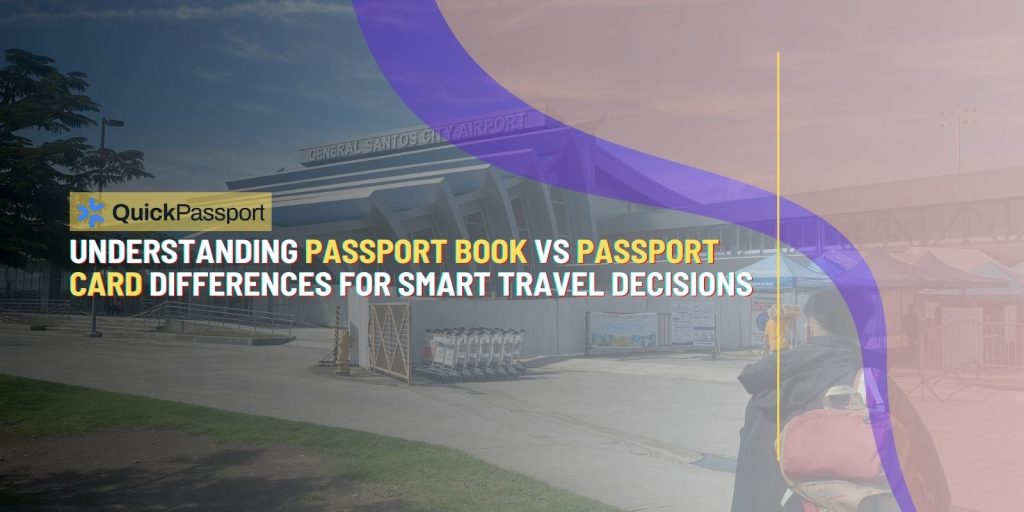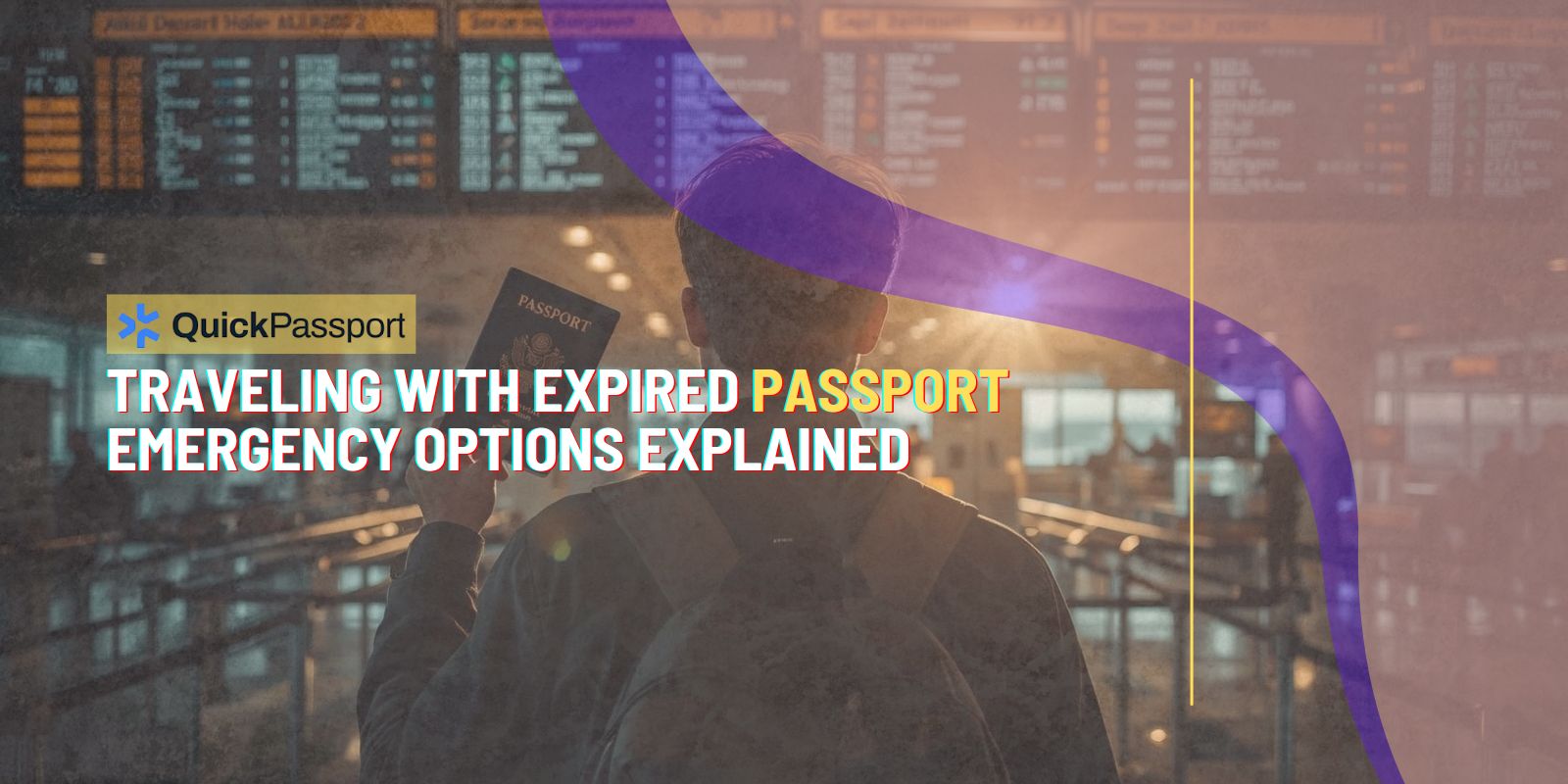Choosing between a passport book and passport card represents one of the most important decisions you’ll make when applying for U.S. travel documents. While both serve as official proof of American citizenship and identity, they function very differently in terms of where you can travel, how you can travel, and what they cost. Understanding these crucial differences ensures you select the right document for your specific travel needs and avoid costly mistakes that could derail your travel plans.
The decision becomes even more complex when you consider that many travelers benefit from having both documents, while others find that one option perfectly meets their needs. Arlington residents planning international travel have access to expert guidance through QuickPassport Arlington, which helps navigate these choices while ensuring proper documentation for any travel scenario.
Overview of U.S. Passport Document Options
The U.S. State Department offers two distinct passport options that serve different travel purposes and lifestyles. Passport books represent the traditional travel document most people envision when thinking about passports, featuring multiple pages for visa stamps and entry records. Passport cards provide a more compact, wallet-friendly alternative designed specifically for frequent travelers to neighboring countries by land or sea.
This comprehensive comparison explores every aspect of passport books versus passport cards, from basic functionality and travel restrictions to cost considerations and application processes. You’ll discover which document type aligns with your travel patterns, learn about the advanced RFID technology that makes passport cards valuable for border crossing efficiency, and understand how QuickPassport Arlington’s professional services streamline the application process for either option.
The guide also addresses common misconceptions about passport card limitations, explains the Ready Lane border crossing system, and provides practical advice for making the best choice based on your specific travel needs and budget considerations.
Key Takeaways for Passport Document Selection:
- Travel Method Restrictions: Passport books work for all international travel methods (air, sea, land), while passport cards only function for land and sea travel to specific neighboring countries
- Geographic Limitations: Passport cards restrict travel to Canada, Mexico, Bermuda, and Caribbean countries only, unlike passport books which enable worldwide travel
- Technology Differences: Passport cards feature RFID technology enabling faster border crossings through Ready Lanes, while passport books require traditional processing
- Cost and Convenience: Passport cards cost significantly less and fit conveniently in wallets, but passport books provide unlimited travel flexibility
- Application Flexibility: You can apply for both documents simultaneously using the same application process, and QuickPassport Arlington guides you through either option efficiently
What is a U.S. Passport Book
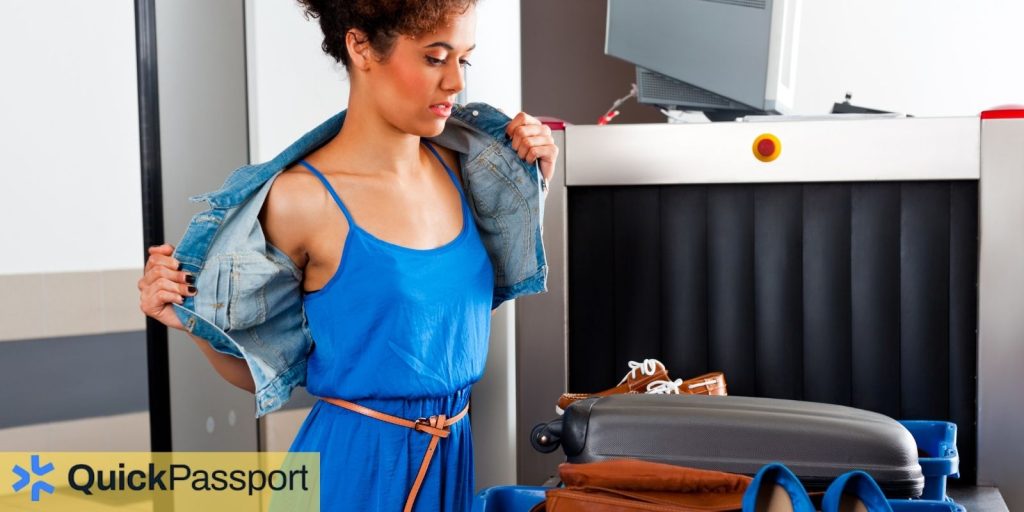
Traditional Passport Book Features
The U.S. passport book represents the standard international travel document that most Americans recognize and use for overseas travel. The passport book is valid for any international travel by air, sea or land and contains 28 pages with your photo, personal information, and blank visa pages for stamps and travel records. These dark blue booklets measure 5 by 3.5 inches when closed, making them larger than passport cards but still compact enough for travel convenience.
Modern passport books contain sophisticated security features including electronic chips that store biometric information, special inks, watermarks, and other anti-counterfeiting elements. The State Department’s electronic passport system has been standard since 2007, providing enhanced security and faster processing at international borders equipped with electronic readers.
Validity and Global Acceptance
Passport books provide unlimited geographic flexibility, allowing travel to any country that accepts U.S. visitors. This universal acceptance makes passport books essential for travelers planning trips to Europe, Asia, Africa, South America, or any destination beyond the limited regions where passport cards function. The documents remain valid for 10 years for adults and 5 years for children under 16, providing long-term value for international travelers.
QuickPassport Arlington frequently advises clients that passport books represent the safest choice for uncertain travel plans. When you’re unsure about future destinations or travel methods, passport books eliminate the risk of being unable to travel due to document limitations. This flexibility proves especially valuable for business travelers, frequent flyers, or anyone whose travel plans might change unexpectedly.
What is a U.S. Passport Card
Compact Design and RFID Technology
The U.S. passport card is a wallet-sized, plastic passport that has no visa pages and measures the same size as a credit card at 3.5 by 2.25 inches. The card contains your photo, personal information, and a unique passport card number, but its most distinctive feature is the embedded Radio Frequency Identification (RFID) chip that enables faster border processing through specialized Ready Lanes.
The RFID technology allows border officials to scan your information electronically from several feet away, significantly reducing processing time at land border crossings. Ready Lane-eligible cards contain Radio Frequency Identification (RFID) technology, and include the following: U.S. Passport Cards, Enhanced Driver’s Licenses, Enhanced Tribal Cards, Enhanced Border Crossing Cards, Enhanced Permanent Resident Cards, and Trusted Traveler Program (NEXUS, SENTRI, Global Entry or FAST) cards. This technology makes passport cards particularly valuable for frequent border crossers to Mexico and Canada.
Geographic and Transportation Restrictions
Passport cards come with significant limitations that travelers must understand before choosing this option. The card is for U.S. citizens who travel by land and sea from Canada, Mexico, Bermuda, and some Caribbean countries. The card is not valid for international travel by air and is cheaper than the passport book. These restrictions mean that passport cards cannot be used for flights to any international destination, even to countries where the cards are otherwise accepted.
The transportation limitation represents a critical consideration for travelers. Even if you plan to drive to Mexico but might need to fly home due to an emergency, a passport card alone would not permit air travel back to the United States. QuickPassport Arlington often recommends that cruise passengers and land travelers consider obtaining both documents to ensure flexibility for unexpected travel changes.
Key Differences Between Passport Books and Cards
Travel Method and Geographic Scope
The fundamental difference between passport books and cards lies in their scope of acceptable travel methods and destinations. Passport books enable unlimited international travel by any transportation method to any country accepting U.S. visitors, while passport cards restrict users to land and sea travel exclusively to Canada, Mexico, Bermuda, and Caribbean countries. This difference determines which document suits your travel patterns and lifestyle.
For Arlington residents planning European vacations, Asian business trips, or African safaris, passport books remain the only viable option. Conversely, frequent visitors to nearby Tijuana, Vancouver, or Caribbean cruise destinations might find passport cards perfectly adequate for their needs. The CBP’s travel document requirements clearly outline these restrictions and help travelers understand compliance requirements.
Physical Design and Practical Considerations
The physical differences between passport books and cards impact daily carry convenience and security considerations. Passport books require dedicated storage space in travel bags or security pouches, while passport cards slip easily into wallets alongside driver’s licenses and credit cards. This convenience factor makes passport cards appealing for frequent border crossers who want to keep travel documents readily accessible.
However, passport books provide space for visa stamps, entry/exit records, and travel history documentation that some travelers value for record-keeping or visa application purposes. The multiple pages also accommodate countries requiring specific stamp placements or travelers visiting numerous destinations during extended international trips.
Border Crossing Efficiency and Ready Lanes
Passport cards offer significant advantages for land border crossings through their RFID technology integration with Ready Lane systems. For a vehicle or group of pedestrians to be Ready Lane eligible, all travelers 16 years-old and older must be carrying a Ready Lane-eligible card. This system can dramatically reduce border crossing wait times, especially during peak travel periods at busy crossings like San Ysidro or Detroit.
Traditional passport books require manual processing by border officials, which takes longer than the electronic scanning available with RFID-enabled passport cards. The CBP Ready Lanes program continues expanding to additional border crossings, making passport cards increasingly valuable for frequent travelers to Mexico and Canada who cross by land or sea.
Cost Considerations and Value Analysis
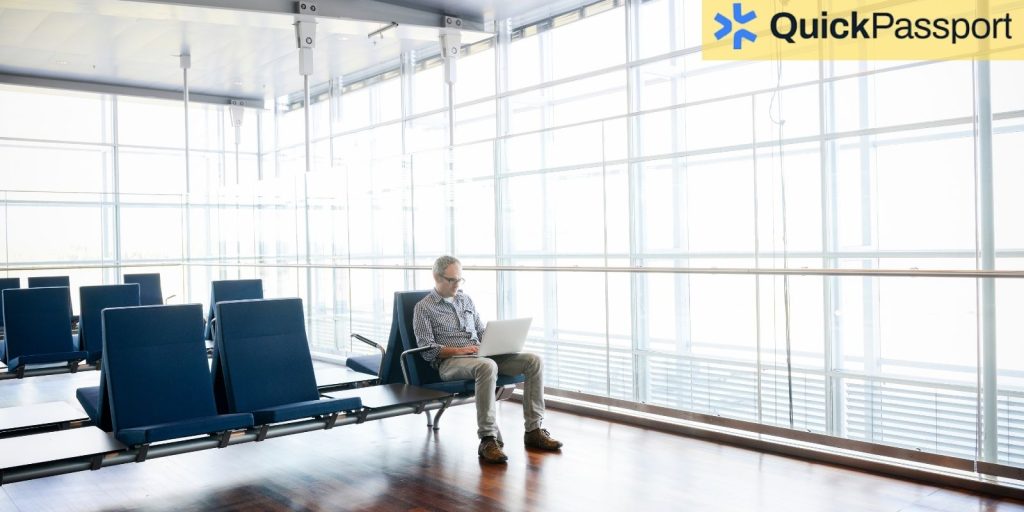
Application and Renewal Fee Structures
Cost differences between passport books and cards significantly impact budget-conscious travelers, especially families applying for multiple documents. First-time adult applicants pay substantially less for passport cards compared to passport books, while children’s documents follow similar pricing patterns with proportionally lower fees. The cost differential becomes more pronounced when considering family applications involving multiple children.
QuickPassport Arlington helps Arlington families understand the total cost implications when choosing between document types or deciding to obtain both options. While specific pricing varies, the professional guidance ensures families make cost-effective decisions that align with their actual travel needs rather than overspending on unnecessary document types or underestimating their travel requirements.
Long-term Value and Flexibility Considerations
When evaluating document costs, consider the 10-year validity period for adult passports and 5-year validity for children’s documents. This long-term perspective often favors passport books despite higher initial costs, especially for travelers whose plans might evolve over the validity period. Career changes, family developments, or lifestyle shifts frequently expand travel horizons beyond the limited scope of passport cards.
The cost difference between obtaining both documents simultaneously versus applying separately also influences decision-making. Single application processing provides administrative efficiency and reduces the total application fees compared to separate submissions, making the dual-document option attractive for travelers who might eventually need both types.
Application Process and Documentation Requirements
Shared Application Procedures
Both passport books and cards follow identical application processes using the same forms and documentation requirements. We use the same forms for both passport books and cards. The first step on our forms is to select if you want a passport book, passport card, or both documents. This streamlined approach simplifies the decision-making process and allows flexibility in choosing document types during application.
First-time applicants must appear in person at authorized acceptance facilities with proof of citizenship, government-issued photo identification, completed application forms, appropriate fees, and compliant passport photos. The State Department’s application requirements remain consistent regardless of document type, ensuring standardized processing and security verification.
QuickPassport Arlington Professional Services
QuickPassport Arlington streamlines the application process for both passport books and cards through expert guidance, document review, and expedited processing options. Their professional services eliminate common application errors that cause delays, ensure photo compliance, and provide convenient coordination with acceptance facilities throughout the Arlington area.
The local expertise proves especially valuable for travelers uncertain about which document type best suits their needs. QuickPassport Arlington’s consultation services help Arlington residents evaluate travel patterns, assess cost-benefit considerations, and make informed decisions about obtaining one or both document types based on their specific circumstances and future travel plans.
Who Should Choose Each Document Type
Ideal Passport Book Candidates
Passport books represent the optimal choice for travelers planning international air travel, visiting countries outside North America and the Caribbean, or uncertain about future travel destinations. Business travelers, students studying abroad, military personnel, and adventure travelers typically benefit most from passport book flexibility and universal acceptance.
Arlington residents planning European river cruises, Asian business trips, African safaris, or South American adventures require passport books regardless of other travel document preferences. The unlimited geographic and transportation flexibility justifies the higher cost for travelers whose plans extend beyond the limited scope of passport card acceptance.
Perfect Passport Card Scenarios
Passport cards excel for frequent travelers to Mexico and Canada who cross borders primarily by land or sea. Arlington residents who regularly visit family in Toronto, conduct business in Mexico City via land routes, or enjoy frequent Caribbean cruises find passport cards convenient and cost-effective for their specific travel patterns.
Border state residents, seasonal snowbirds traveling to Mexico, and cruise enthusiasts focusing on Caribbean destinations represent ideal passport card candidates. The RFID technology and Ready Lane access provide tangible benefits for travelers who cross borders frequently and value efficiency over unlimited destination flexibility.
Benefits of Having Both Documents
Many experienced travelers choose to obtain both passport books and cards to maximize convenience and flexibility. This strategy allows using passport books for international flights while keeping passport cards readily accessible in wallets for impromptu border crossings or situations where you prefer not to carry your primary passport book.
QuickPassport Arlington often recommends dual documents for Arlington residents who travel internationally for business but also enjoy frequent weekend trips to nearby Canada or Mexico. The combination provides optimal flexibility while ensuring appropriate document security through strategic use of each type based on specific travel circumstances.
Ready Lane Technology and Border Crossing Benefits
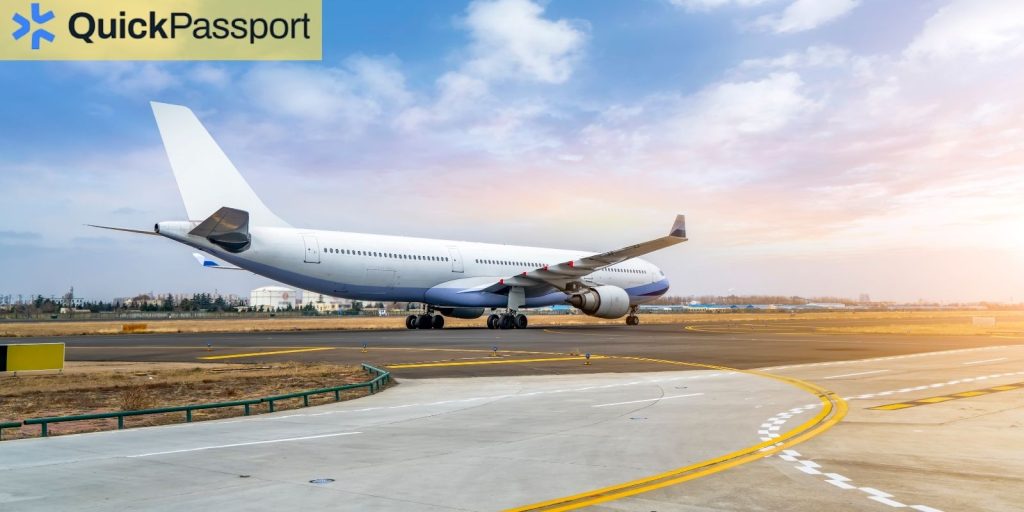
RFID Technology and Enhanced Processing
The Radio Frequency Identification technology embedded in passport cards revolutionizes border crossing efficiency for eligible travelers. Ready Lane-eligible cards contain Radio Frequency Identification (RFID) technology, enabling border officials to scan traveler information electronically from several feet away without manual document handling.
This technology integration significantly reduces processing time, especially during peak travel periods when traditional lanes experience substantial delays. The electronic scanning capability allows border officials to access traveler information instantly, facilitating faster identity verification and reducing overall border crossing duration for Ready Lane users.
Current Ready Lane Locations and Expansion
Ready Lanes operate at major border crossings throughout the United States, with continued expansion planned for additional locations. Current installations include key California crossings like San Ysidro and Otay Mesa, Arizona locations including Nogales and Douglas, and Texas crossings such as Laredo and El Paso. The CBP border wait times website provides real-time information about Ready Lane availability and current processing times.
Arlington travelers planning trips to Mexico or Canada benefit from understanding Ready Lane locations and operating hours, as these vary by crossing point and can significantly impact travel time planning. QuickPassport Arlington provides current information about Ready Lane availability and helps travelers plan efficient border crossing strategies.
Usage Requirements and Group Travel Considerations
Ready Lane usage requires that all travelers 16 years and older in a vehicle possess valid RFID-enabled documents. For a vehicle or group of pedestrians to be Ready Lane eligible, all travelers 16 years-old and older must be carrying a Ready Lane-eligible card. This requirement means that groups with mixed document types cannot use Ready Lanes and must process through standard lanes.
Family travelers need to coordinate document types to maximize Ready Lane benefits, as one traveler without an RFID-enabled document prevents the entire group from using the expedited lanes. This consideration often influences family decisions about passport card applications, especially for households with frequent border crossing patterns.
Common Questions About Passport Book vs Passport Card Differences
Can I use a passport card for international flights?
No, passport cards cannot be used for any international air travel, even to countries where they are otherwise accepted for land and sea entry. The card is not valid for international travel by air regardless of destination. If you plan to fly to Canada, Mexico, Bermuda, or Caribbean countries, you must use a passport book. This restriction applies even for flights within regions where passport cards work for other transportation methods.
Which document is better for cruise travel to the Caribbean?
While passport cards are technically valid for Caribbean cruise travel by sea, most cruise lines strongly recommend passport books in case emergency situations require air transportation home. Medical emergencies or other urgent circumstances might necessitate flying back to the United States, which requires a passport book. QuickPassport Arlington typically advises cruise passengers to carry passport books for maximum flexibility and emergency preparedness.
Can I apply for both a passport book and card at the same time?
Yes, you can apply for both documents simultaneously using the same application form and documentation. You can apply for both a passport book and passport card at the same time using the same application. This approach is often more convenient and cost-effective than separate applications, and QuickPassport Arlington can guide you through the process to ensure you receive both documents efficiently.
Do passport books work in Ready Lanes at border crossings?
No, traditional passport books cannot be used in Ready Lanes because they lack the specific RFID technology required for electronic scanning. Only passport cards and other specifically designated RFID-enabled documents work with Ready Lane systems. Ready Lane-eligible cards contain Radio Frequency Identification (RFID) technology, which passport books do not possess in a compatible format for Ready Lane readers.
How long are passport books and cards valid?
Both passport books and cards have identical validity periods: 10 years for adults aged 16 and older, and 5 years for children under 16 at the time of issuance. The validity periods begin from the issue date and are not affected by document type. The card is proof of U.S. citizenship and identity, and has the same length of validity as the passport book.
Can I use my passport card as identification for domestic flights?
Yes, passport cards serve as valid identification for domestic flights within the United States and meet TSA requirements as acceptable federal identification. This makes passport cards useful dual-purpose documents for travelers who need both domestic air travel identification and international land/sea travel capabilities to neighboring countries.
What happens if I lose my passport card while abroad?
If you lose your passport card while traveling internationally in countries where it’s accepted, you would need to contact the nearest U.S. embassy or consulate for assistance. However, since passport cards are only valid for land and sea travel, you cannot use a replacement passport card to fly home. You would need to obtain an emergency passport book for air travel back to the United States.
Which document should I choose if I’m unsure about my travel plans?
If you’re uncertain about future travel destinations or methods, a passport book provides the safest choice because it works for all international travel scenarios. Use the passport book for international air travel and any other international travel situation. QuickPassport Arlington can help you evaluate your travel patterns and make the best choice based on your specific circumstances and potential future needs.
Can I renew both documents using the mail-in renewal process?
Yes, if you’re eligible for mail-in renewal, you can renew both passport books and cards simultaneously. However, if you’re renewing both your passport book and passport card, you must provide both documents as part of the renewal application. If you’ve lost one document, you cannot renew it by mail and must apply in person for a replacement.
Are there any advantages to having a passport card if I already have a passport book?
Yes, passport cards offer several advantages even when you have a passport book. They provide convenient wallet-sized identification, enable faster border crossings through Ready Lanes, and serve as backup identification that you can carry separately from your passport book for security purposes. Many travelers prefer keeping passport books secure while using passport cards for everyday border crossing convenience.
Making the Right Choice for Your Travel Needs
Understanding the differences between passport books and cards empowers you to make informed decisions that align with your travel patterns, budget considerations, and lifestyle needs. Whether you choose the unlimited flexibility of a passport book, the convenience and cost-effectiveness of a passport card, or the comprehensive coverage of both documents, the key is matching your choice to your actual travel requirements rather than assumptions about future needs.
QuickPassport Arlington’s expert guidance ensures Arlington residents navigate these choices efficiently while avoiding common pitfalls that lead to travel delays or unnecessary expenses. From initial consultation through document delivery, professional passport services streamline the entire process and provide the expertise needed to make confident decisions about your travel documentation needs. Contact QuickPassport Arlington today to discuss your specific travel plans and discover which passport option provides the best solution for your international travel requirements.

